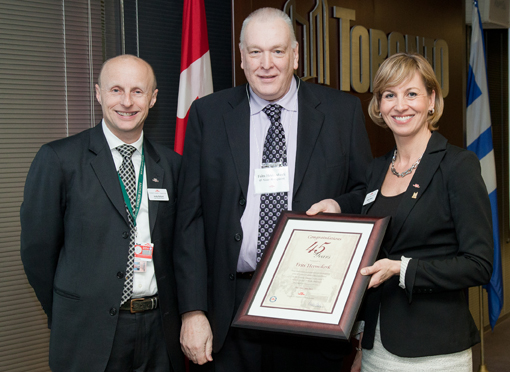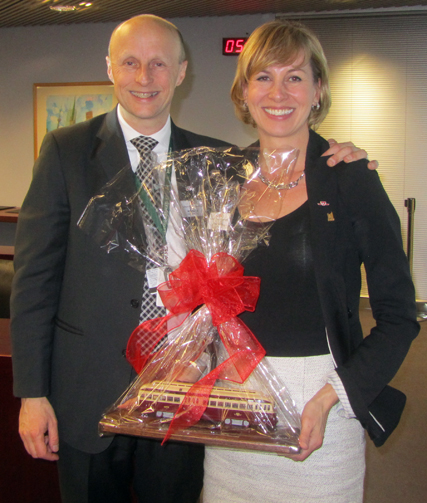Editorial
TTC Board Meeting Highlights (January 2014)
January 28 Meeting
Time-based transfer study
The Board unanimously approved to further study the conversion of the continuous-trip transfer system to a time-based transfer system.
Board members also directed staff to consider implementing a time-based transfer system as part of the 2015 operating budget; end the time-based transfer trial on the 512 St Clair route if a TTC-wide time-based system is not adopted in 2015; and define a policy for use during times of significant disruption due to new transit construction.
The TTC report estimates that a transfer valid for 120 minutes would result in a $20-million revenue loss versus a 90-minute transfer, which would equate to a $12-million loss. Either option would require ongoing subsidy to make up for these losses.
The current transfer is valid for one continuous trip, without stopovers and with no backtracking. A time-based transfer is valid for boarding a vehicle or entering a station without paying another fare for a pre-determined time (i.e. 90 or 120 minutes).
The report was prepared in response to a request last December made by TTC Chair Karen Stintz to review the current transfer policy with the introduction of the Presto fare card system at the TTC.
Transit stops study
The Board discussed a staff report on the subject of improving pedestrian safety and customer journey times with respect to TTC bus and streetcar stops. Board Members voted to refer the subject for consultation with affected Councillors and the Advisory Committee on Accessible Transit and report back at the February Board meeting.
Accessible taxi service contracts
Board Members approved the award of contracts worth $120 million to Associated Toronto Taxi Cab Co-operative Ltd., Checker Taxi, Royal Taxi Inc. and Scarborough City Cab for new accessible taxi services. The contracts take effect in July and will ensure continuous and reliable Wheel-Trans service to registered riders with physical disabilities for the next five years.
79B Scarlett Rd trial starts March 30
The TTC Board approved a trial of a new off-peak service on the 79B Scarlett Rd branch (Runnymede Station to Lawrence Avenue and Jane Street, via St. Clair Avenue West). Starting on March 30, buses will run during the weekday middays and early evenings from Monday to Friday, and during the daytime on Saturdays, Sundays and holidays. The 79 Scarlett Rd bus route links Runnymede Station with the Scarlett Road neighbourhood in the west end of Toronto. The adjustment is expected to improve overall service for customers.
TTC to study express bus stops at GO stations
Board Members approved a motion by Commissioner Raymond Cho for TTC staff to report back on the feasibility of having TTC express buses stop at GO rail stations where they intersect. One such example where this type of service improvement is possible is at Milliken Station.
Requests from the Chair
The Board approved two requests for staff reports from by TTC Chair Karen Stintz on the following:
- “Cogeneration is a very efficient way to generate both heat and electricity. Downtown Toronto already has an extensive steam-heat system that heats many major downtown buildings. The TTC has an existing stack near its head office at Yonge and Davisville that could be part of a cogeneration system serving the heating needs of nearby apartment and office buildings and the electricity needs of the TTC. There may be opportunities for the TTC to generate additional revenue by leveraging this asset with a private-sector cogeneration partner and staff are asked to prepare a report on such opportunities.”
- “One area of the transit network that remains susceptible to delays due to traffic and parking problems is the surface vehicle entrance/exit ways (driveways) to subway stations. These driveways are typically not signalized, so buses and streetcars are frequently obstructed, within metres of their destinations by stopped, standing or parked vehicles. The delays incurred when buses or streetcars have trouble accessing or departing stations should be examined to identify possible solutions, and report back to the Feb. 24, 2014 meeting.”

